The world is mourning the passage of ‘the Black King’
I cannot help but add my humble voice to the outpouring of tributes.
My friend Idy calls me up this morning from the United States. He wants to know if flags will be flown at half mast in Nigeria today in mournful acknowledgment of the passage of a great Black man whose place in Black history is in the category of Muhammed Ali, Nelson Mandela and Patrice Lumumba.
Afterall, Uyoe reminds me, Pele, at a time in Nigeria’s history, temporarily halted the civil war between soldiers of the armies of Nigeria and Biafra to enable them follow the commentaries of a football match that held in Lagos. He thinks that for that feat alone, Pele deserves more than mere pedestrian tributes, and must be accorded the highest respect, recognition and honour by Nigeria at his death.
So, I am thinking.
No, Nigeria will not fly flags at half-mast, or declare any days of mourning.
This is simply because most people do not know enough about Pele’s relationship with Nigeria to warrant such a huge step. That story has to be told. Idy’s question provokes that interrogation.
Shortly after the Nigerian Civil War started in 1967, Santos FC of Brazil, a small urban club in Sao Paolo until Pele made it globally famous, visited Nigeria in 1969 at the invitation of the Nigeria Football Association, NFA.
Also Read – NFF, CAF Mourn ‘King’ Pele
The Nigeria/Biafra War was raging at the time in the Eastern part of Nigeria, but was hardly felt in other parts, particularly in Lagos, far from the theatre of the brutal war. The soldiers on both sides, weary from the carnage of the war, must have needed a respite. It must have come in the innocuous form of a friendly football match that would feature the most famous player on the planet.
In the absence of television, the way we know it today, radio provided the most powerful medium of broadcast of football matches at the time. Radio was massive and powerful, a great propaganda weapon even for the warring armies of Nigeria and Biafra.
Everyone listened to radio, particularly the big football matches featuring commentaries. During those matches, people all over the country gathered in clusters around radio sets listening to the commentaries delivered with incredible verbal dexterity by legendary commentators led by late Ishola Folorunsho. When a goal was scored, for example, the streets exploded in an orgy of celebration….even at the war fronts, it seems.
So, when the greatest and most celebrated football player in the world and his famous Club, Santos FC, came visiting Nigeria in 1969, it was surreal. These were gods on a pilgrimage to Nigeria.
The match was the most anticipated event in the whole of Nigeria, dominating all conversations, even the war. On the day of the match, everyone outside the jam-packed Onikan Stadium, Lagos, was glued to radio sets following the match.
The soldiers at the war front could not have been left out. The feast of propaganda on radio about who was winning the war between the armies must have given way to the commentaries building up to a crescendo as the time for the match approached. No war was going to stop the soldiers at the war front from following the proceedings at the Onikan stadium, not with the greatest football player on earth playing in Nigeria. It was a once-in-a-lifetime experience that must not be missed.
The reality is that there was no account of any official meeting between the warring armies. No official truce was ever declared. There was no meeting of any Nigeria/Biafra delegations. What must have happened was the unadulterated power of football at full bloom and in full display.
There were stories of a few soldiers in both armies sheathing their guns for a few hours before and during the match, to listen to the voices of Ishola Folorunsho and co, as they captured the match in Lagos. The scene may have been captured also in a scripted essay by a creative writer as an isolated account of the Nigerian Civil war.
That must be how the unverified story of how that football match temporarily halted the war became legend. At best, it was the demonstration of the power of football to capture the imagination.
Also Read: Pele Is The True Legend –Burna Boy
Pele and his team went on to play in Benin City at the newly opened Ogbe Stadium, Benin City, at the invitation of late Dr. Samuel Ogbemudia.
After 1969, Pele visited Nigeria two more times.
He was in Nigeria in 1976.
This time he came as Pepsi ambassador, promoting football as well as the Pepsi brand in an African tour. Visiting the country at the same time was another legendary Black, African/American tennis legend, Arthur Ashe, the first Black person to win one of the 4 Grand Slam tennis events – the Wimbledon Championship.
Both of them were in Nigeria on the day the botched military coup of 1976 took place. Ashe was actually playing a match on the centre-court of the Lagos Lawn Tennis Club in Lagos when soldiers marched in to halt the game.
Both athletes were traumatised by the unexpected experience of that fateful day – Friday, February 13, 1976. They were taken into safe custody and flown abroad as soon as possible.
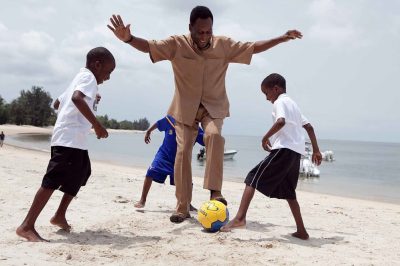
Whilst Arthur Ashe never came back, 2 years after that incident, Pele was back promoting football again with another Brazilian club. The club was to play some friendly matches with the Green Eagles in Lagos and a few selected clubs around the country, including Shooting Stars FC in Ibadan. The Lagos match took place with Pele playing for both sides in each half. The match at the Liberty Stadium, Ibadan two days later, went on without Pele. He had to prematurely abort the engagement and left the country suddenly for some unspecified reason.
That’s how I never got to meet and to shake the hands of the most admired football player in history. I had chosen to wait and play in the Ibadan match rather than play with the national team in Lagos. So, I lost my only opportunity to play alongside the great legend.
Pele always believed that an African team would win the World Cup before the end of the 20th Century. He also always openly expressed his admiration for Nigeria’s breed of footballers and brand of football. In Scotland during the 1989 Youth Championship, he watched the semi-final match of the Nigerian team and predicted that the team of Victor Ikpeba, Godwin Okpara and co would win the World Cup before the end of that Century. Such was his belief in the strength of Nigerian players and football.
Indeed, many of us believed that had his DNA been taken to find out his genetic roots, his ancestry would have been traced to the South-South of Nigeria. The man had “Calabar’ written all over his looks and physique.
So, Idy, should Nigeria fly flags at half-mast and declare days of mourning for this legendary Brazilian football god? Or should we just add our collective voices to the chorus of tributes, and wish him a peaceful journey back to his Creator?
What is most important, however, is that: ‘The King is dead, long live the King’. Pele has died but he lives on for eternity in the hearts and minds of the football faithful.
Segun Odegbami
Photos credit: @Pele (Instagram)


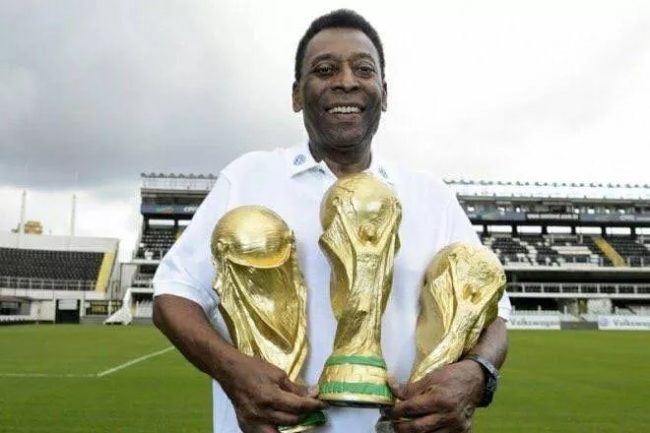
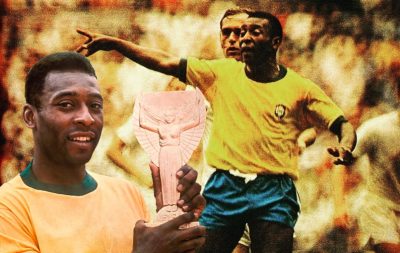
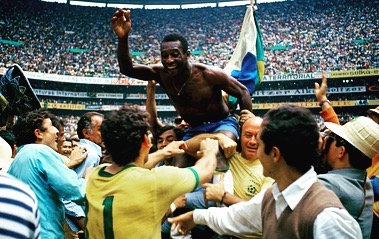
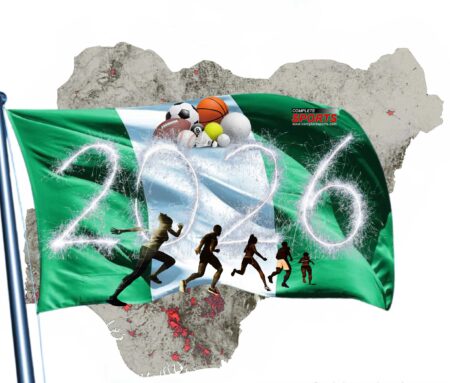
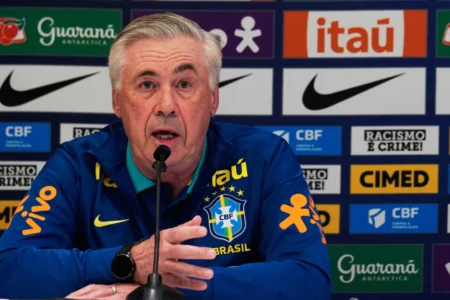
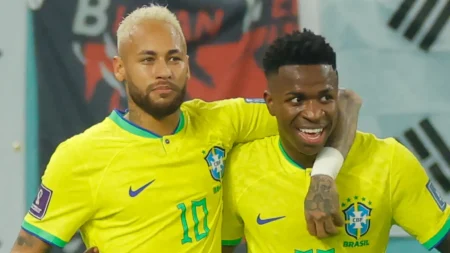
1 Comment
The mercurial pele has finally gone to rest. He has created himself a foot ball ancestor of the time as the world will always have a PELE . May his soul rest in peace